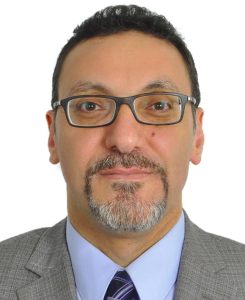Oshawa’s Ontario Tech adds to their research base with another $4.3 million in new grants
Published June 30, 2022 at 5:15 pm

The mark of any great university – especially a technology-based school – is research growth and Ontario Tech University in Oshawa has a lot to crow about from its first 19-plus years of existence.
Ontario Tech’s research income doubled in the last three years to $23 million annually and this year added another $4.3 in new grants for nearly 30 new multidisciplinary projects being led by the university’s experts.
The school doesn’t celebrate its 20th birthday until this fall but, thanks to a strong foundation for impactful research during its formative years, along with a track record that included hundreds of industry and community partnerships Ontario Tech’s research imprint on knowledge creation and regional economic development continues on a powerful upward trajectory.
This year’s support for research exploring solutions to pressing societal problems comes from the Social Science and Humanities Council, the Canadian Institutes for Health Research and the Natural Sciences and Engineering Research Council of Canada.
Beyond Ontario Tech’s distinct array of undergraduate and postgraduate degree programs, the university has emerged as a vital research hub and cluster of expertise anchoring the eastern flank of the Greater Toronto Area. Ontario Tech’s academic roster includes 11 Canada Research Chairs, and its research infrastructure boasts more than 80 specialized labs and facilities.
Hundreds of top academics from across Canada and around the world – including many of the university’s 25,000 alumni – call Ontario Tech home, and collectively they make a huge contribution to new knowledge, all while helping drive new regional economic growth and development.
Ontario Tech was chosen Ontario’s Research Centre of the Year for 2021 (smaller research universities) and earned a Top 200 global selection in Times Higher Education ranking (for schools under 50 years old), among other accolades.
The new grants awarded this year are for the following projects:
Exploring the physiological and molecular responses to environmental cross-acclimation
-
- Dr. Heather Logan-Sprenger (Faculty of Health Sciences (FHSc))

Dr. Heather Logan-Sprenger
Effect of altered neck sensory feedback on brain plasticity and upper limb sensorimotor integration
-
- Dr. Bernadette Murphy (FHSc)
Design and experiment of resilient hybrid energy systems for interconnected and smart infrastructures
-
- Dr. Hossam Gaber (Faculty of Energy Systems and Nuclear Science (FESNS))
Inverse problems in mechatronic system integration and control
-
- Dr. Matthew Harker (Faculty of Engineering and Applied Science (FEAS))
Advanced 3D nanonetwork materials induced by ultrashort plasma ionization
- Amirkianoosh Kiani (FEAS)
Design and development of AI-enabled framework for Internet of Things networks
-
- Dr. Qusay Mahmoud (FEAS)

Dr. Qusay Mohmoud
Flow-sound interaction mechanisms with application to bluff body wakes and separated shear flows
-
- Dr. Atef Mohany (FEAS)
Microwave and millimetre-wave active antennas for Internet of Things applications
-
- Dr. Langis Roy (FEAS)
Grid integration of renewables
-
- Dr. Vijay Sood (FEAS)
Dissecting the molecular determinants dictating red blood cell lifespan
-
- Applicant: Dr. Syed Qadri (FHSc)
The influence of mental fatigue on functional perception-action coupling during skill acquisition
-
- Dr. Nicholas Wattie (FHSc)
Development of novel catalytic methodologies
-
- Dr. Yuri Bolshan (Faculty of Science (FSci)






